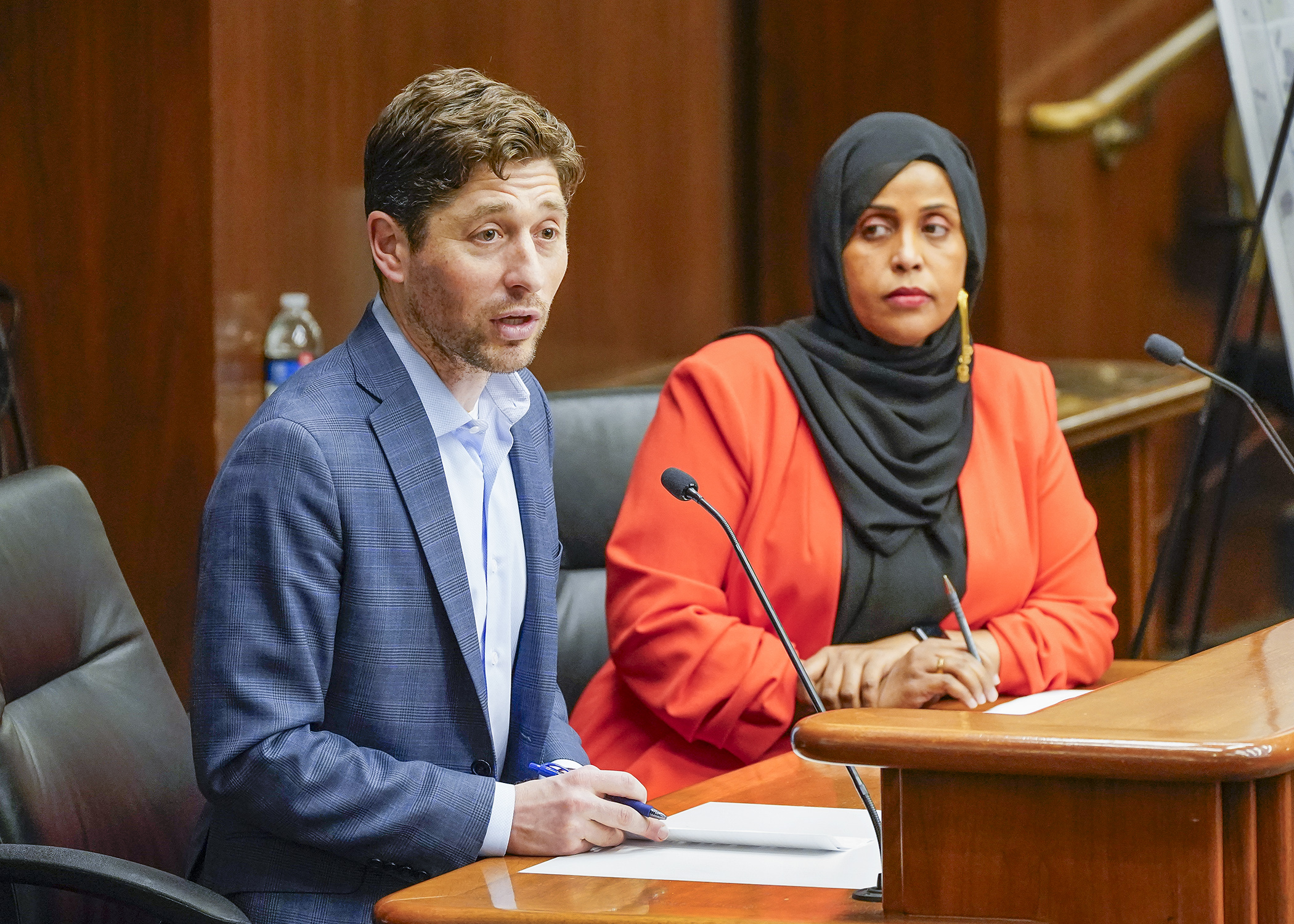Minneapolis public housing authority seeks $35 million in state money for affordable units

The largest non-federal funding amount ever given to the Minneapolis Public Housing Authority would allow for equipping and refurbishing 700 deeply affordable family housing units built in the 1960s.
Sponsored by Rep. Hodan Hassan (DFL-Mpls), HF4169 would appropriate $35 million in fiscal year 2025 from the General Fund to the housing agency. The House Housing Finance and Policy Committee laid the bill over Wednesday for possible inclusion in larger legislation.
The investment would benefit 3,100 residents living in these dwelling units as well as about 3,800 families who would live in them over the subsequent three decades, according to a housing authority fact sheet.
“I know the state that they’re in,” said Hassan. “Some of them are falling apart. Some of them need AC units to be installed. Some of them have leaky roofs.”
Rep. Jim Nash (R-Waconia) questioned the amount requested, given the committee’s supplemental budget target is $10 million. Rep. Brian Johnson (R-Cambridge) said he has a “tough time” asking residents of other cities to pay for public housing in Minneapolis through their taxes.
Minneapolis Mayor Jacob Frey said the city began issuing an annual $5 million grant to the housing authority last year. “With this $35 million investment, from the perspective of the state, we would be done.” The agency could then rely on annual federal subsidies because the capital backlog would have been addressed.
Housing authority officials say there is $33 million in capital needs after decades of underfunding from the U.S. Department of Housing and Urban Development. It would allocate $2 million annually for capital repairs, but this is insufficient to address the overall needs.
Proponents noted that public housing can be a bridge to home ownership and increased income.
“Without public housing I wouldn’t be a homeowner,” Muna Dahir said with the aid of a translator. She lived in public housing with her husband and nine children for six years.
Nineteen percent of heads of households in the 700 dwelling units were employed when they moved in. Today, 70% are employed, earning an average of $37,321 a year, according to the authority. Moreover, since 2020 about 16% of families living in the units have purchased their own homes.
Related Articles
Search Session Daily
Advanced Search OptionsPriority Dailies
Speaker Emerita Melissa Hortman, husband killed in attack
By HPIS Staff House Speaker Emerita Melissa Hortman (DFL-Brooklyn Park) and her husband, Mark, were fatally shot in their home early Saturday morning.
Gov. Tim Walz announced the news dur...
House Speaker Emerita Melissa Hortman (DFL-Brooklyn Park) and her husband, Mark, were fatally shot in their home early Saturday morning.
Gov. Tim Walz announced the news dur...
Lawmakers deliver budget bills to governor's desk in one-day special session
By Mike Cook About that talk of needing all 21 hours left in a legislative day to complete a special session?
House members were more than up to the challenge Monday. Beginning at 10 a.m...
About that talk of needing all 21 hours left in a legislative day to complete a special session?
House members were more than up to the challenge Monday. Beginning at 10 a.m...